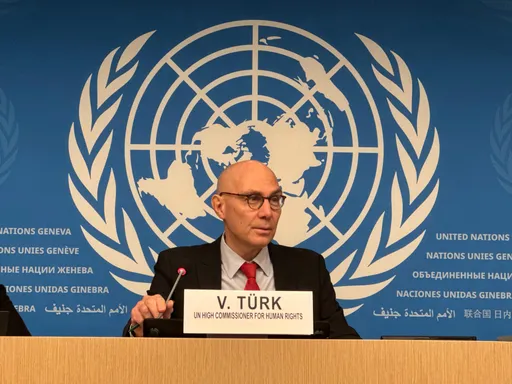The Canadian Pacific coast province of British Columbia has declared a state of emergency following floods and mudslides caused by extremely heavy rainfall, and officials said they expected to find more dead.
Wednesday's move came after every major route between the Lower Mainland of British Columbia and the interior of the province was cut by washouts, flooding or landslides.
“We expect to confirm even more fatalities in the coming days,” British Columbia Premier John Horgan said.
Horgan called it a once in a 500 years event.
He said the state of emergency will include travel restrictions so the transport of essential goods medical and emergency services will reach the communities that need them. He asked people not to hoard goods.
READ MORE:Climate change and global security: What’s at stake?
“These are very challenging times. I've been at this dais for two years now talking about challenging times we have faced — unprecedented challenges with public health, wildfires, heat domes and now debilitating floods that we have never seen before,” Horgan said.
Horgan said over the past six months there have been drought conditions in Merritt, where the river was at its lowest point in living memory and where people had to be evacuated because of wildfires in temperatures that were unprecedented. And now, he said, much of the community is under water.
“We need to start preparing for a future that includes more events like this,” Horgan said.
Terrible floods
“Torrential rains have led to terrible flooding that has disrupted the lives and taken lives of people across B.C. I want people to know that the federal government has been engaging with the local authorities,” Canadian Prime Minister Justin Trudeau said in Washington.
“We're sending resources like the Canadian Armed Forces to support people but also we'll be there for the cleanup and the rebuilding after impacts of these extreme weather events.”
The federal government said it was sending the air force to assist with evacuations and to support supply lines.
Military helicopters already helped evacuate about 300 people from one highway where people were trapped in their cars Sunday night following a mudslide.
The fires burned the ground in a way that prevents water from seeping into the soil.
The total number of people and vehicles unaccounted for had not yet been confirmed near the town of Lillooet.
READ MORE: 'Extreme ice melt in Greenland raises global flood risk'























